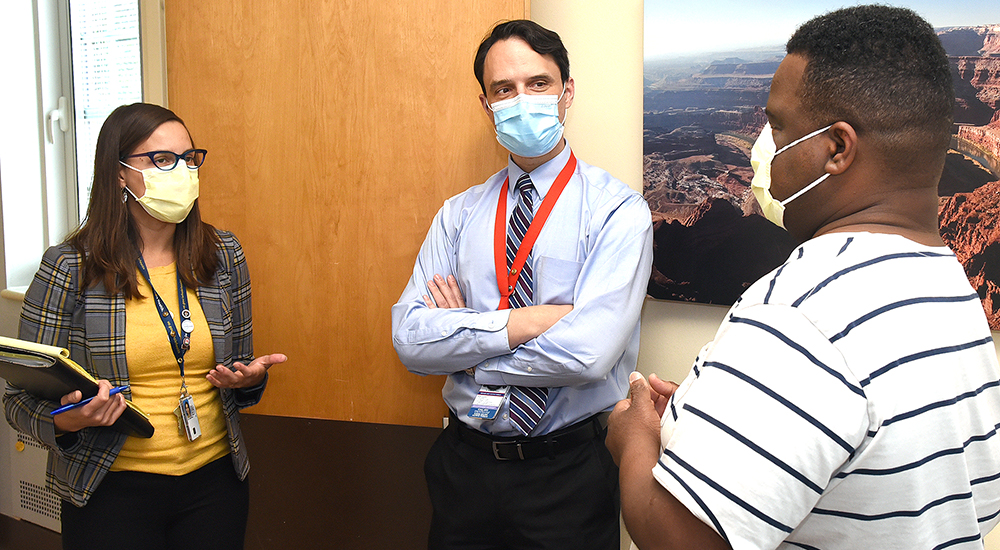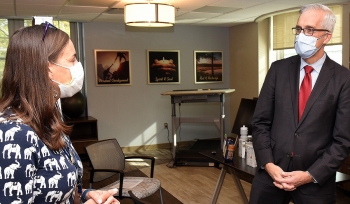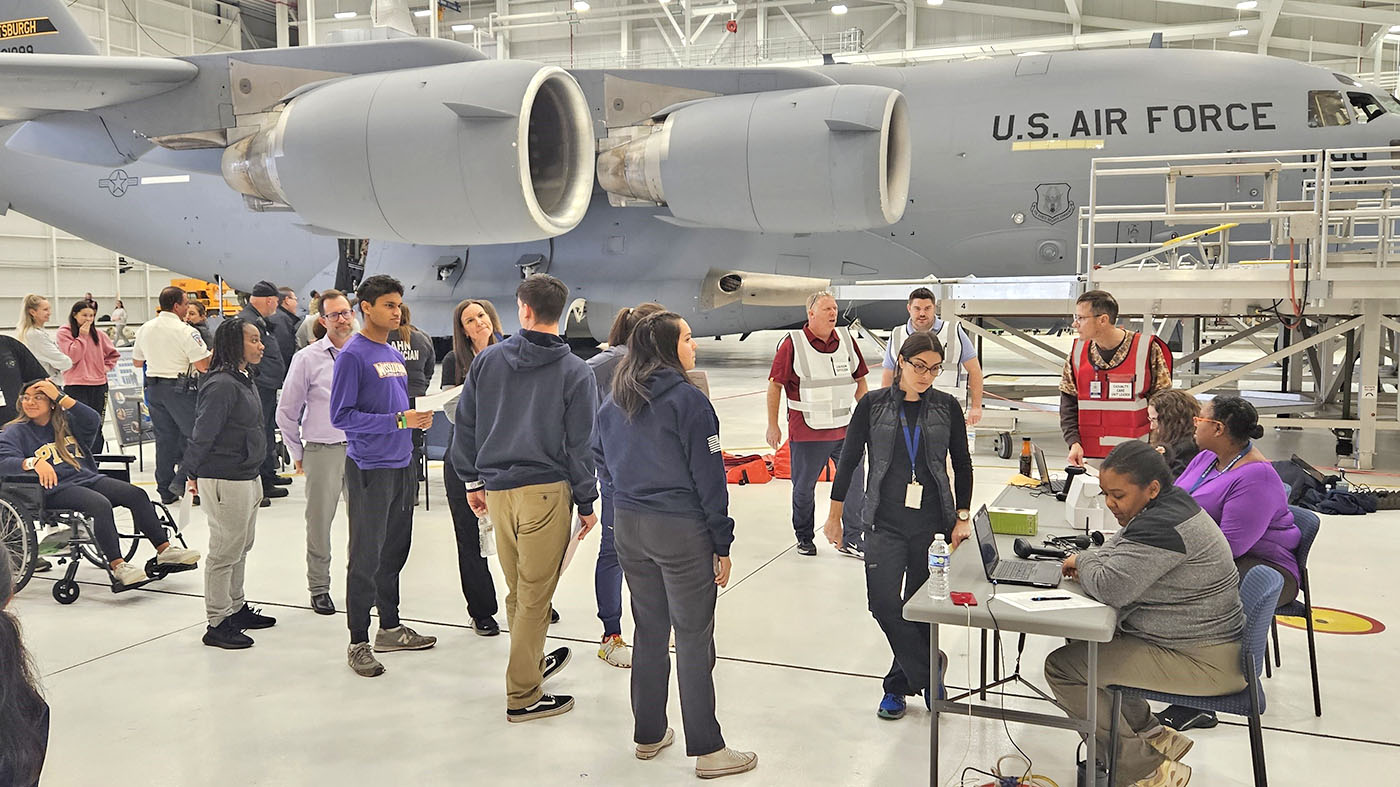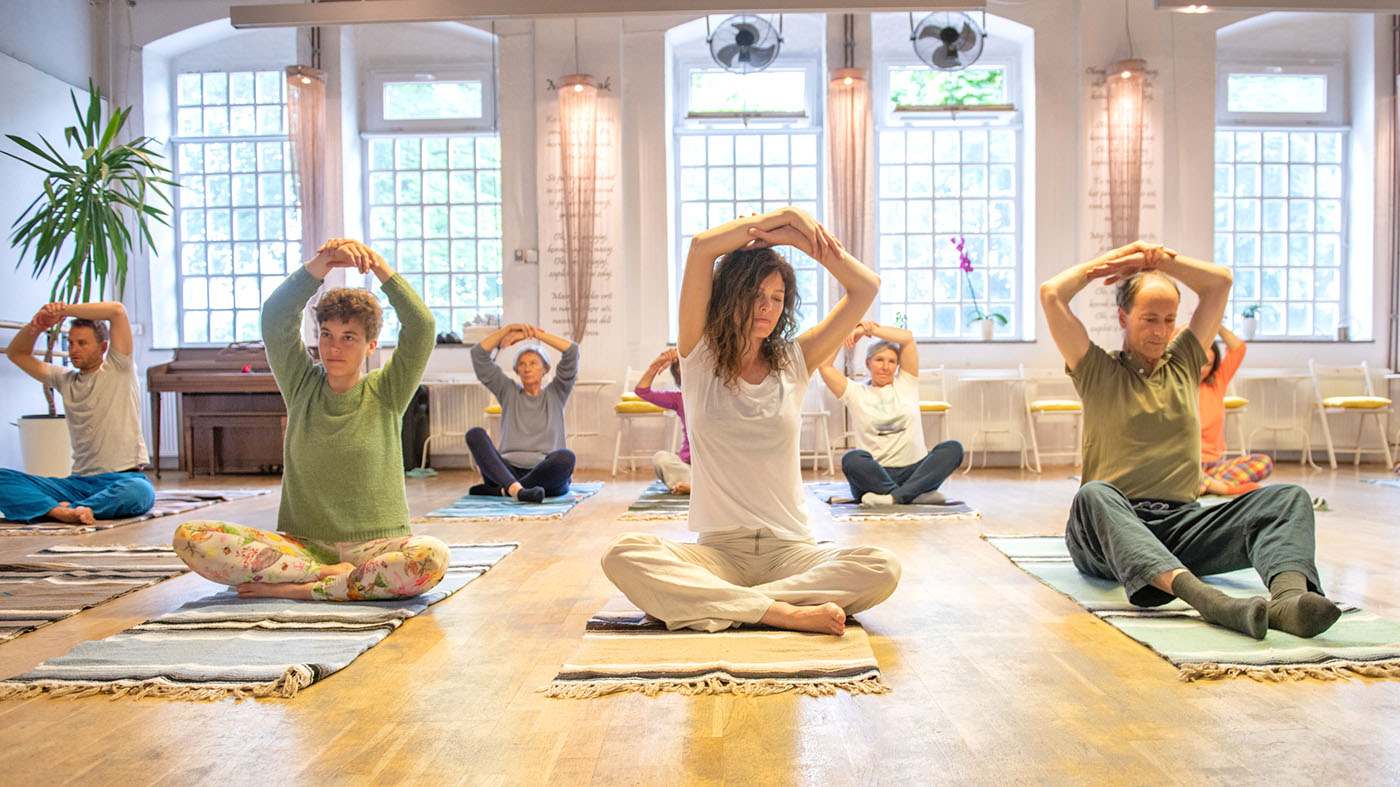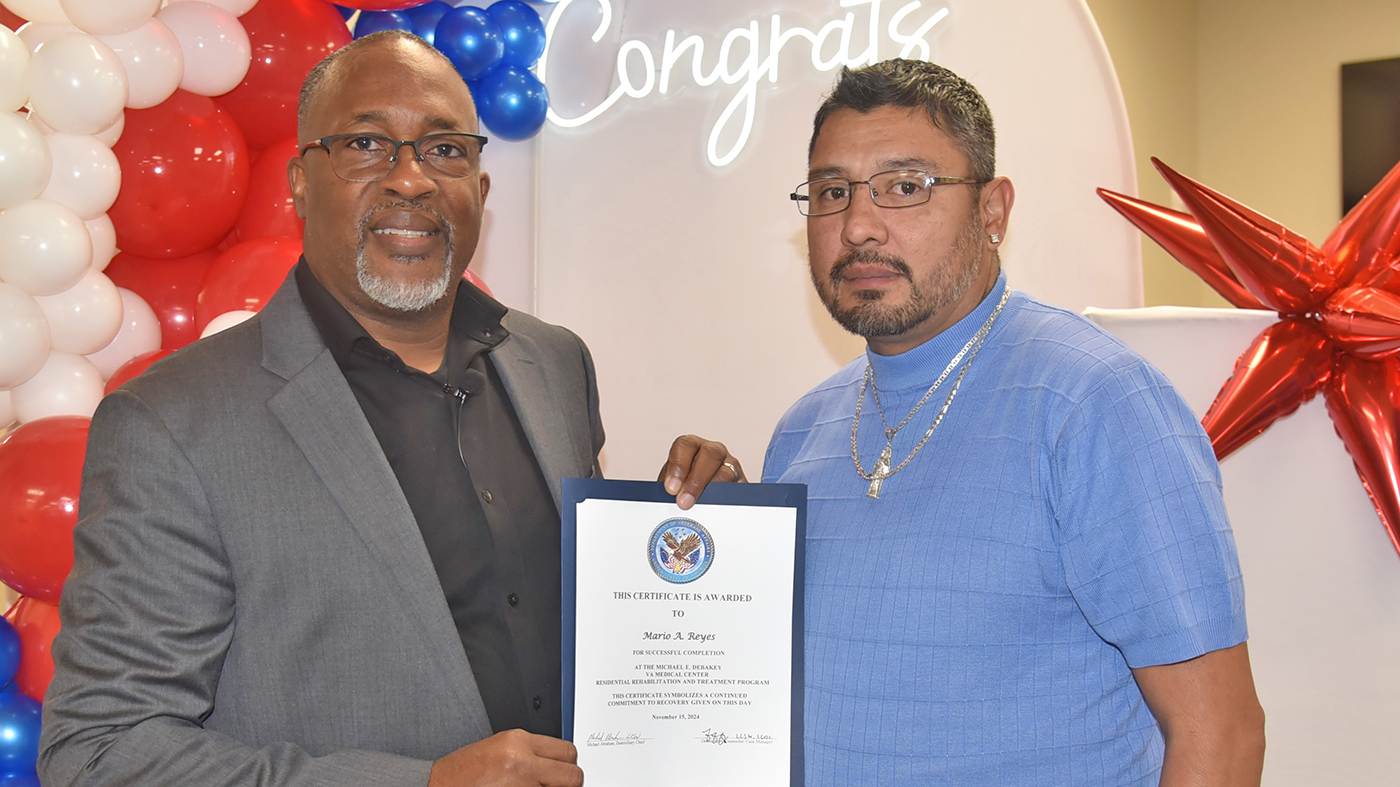When the COVID pandemic first hit, a combat zone memory and a request for crackers led to a stress control model that Salisbury VA has seen become an inspiration to other facilities.
It began when Army Veteran Dr. Marc Cooper, a Mental Health service chief at Salisbury VA, was in a COVID planning meeting to discuss the increased capacity needed to handle an influx of patients.
“We were talking about different supplies that needed to be purchased,” Cooper said. “The chief of surgery asked if his staff could get crackers. He said it would be nice to have crackers for the staff to give them some sort of nourishment if they are working double shifts.”
Cooper had been envisioning beds in the hallways and being overrun with COVID patients, but that statement caused him to reflect on his military experience: “It dawned on me that this was very similar to a combat zone,” he said. “This would be a great opportunity to essentially create the equivalent of a combat and operational stress control service, minus the combat.”
Designed to support staff’s stress levels
Cooper had participated in various planning meetings, but when the surgical chief made that comment, it gave him a new perspective.
“It brought in the human element of how this was going to affect staff at a personal level,” he said. “It sunk in that it’s really going to put a strain on them. What can we do to support their stress levels?”
Cooper put together a team comprised of staff from Mental Health, Social Work, Research, Employee Occupational Health, Whole Health and Chaplain Service.
Perhaps the most impactful aspect of Operational Stress Control (OSC) was the ability to communicate information quickly from the frontlines to the highest levels of leadership.
“During the height of the pandemic, we did surveys weekly and collected real time data, sort of a temperature check,” said Dr. Christina Vair, psychologist and Whole Health director. “Leadership was able to act quickly so people felt they were being heard and their concerns met.”
Calming and relaxation techniques
Salisbury VA Director Joseph Vaughn met with OSC members often during the pandemic to get a sense of staff needs and particular areas that needed his attention.
“It was eye opening for sure,” Vaughn said. “As a director, you’re always putting out fires and OSC certainly informed me of the areas with the most need.”
Staff experiencing stress could speak with trained staff, and were provided with opportunities to learn calming and relaxation techniques.
“We had to come up with ways to give people an opportunity to pause, whether that was a 15-minute mindfulness practice or giving them stress management resources,” Vair said. “And for the people who weren’t able to step away, it was important to show gratitude and appreciation so they still felt they were being recognized for their efforts.”
Salisbury VA Health Care System was the first facility in its network to implement this model. It was recognized by VA Secretary Denis McDonough during a recent visit.
Staff appreciates being asked how they are doing
Cooper has seen the effect of checking in with the workforce.
“Staff really valued being asked how they were doing,” Cooper said. “Even this long into the pandemic, we continue to see staff members showing appreciation because they’re being checked on.”
Since April 2020, OSC has received more than 4,660 individual survey responses. It has reached 1,007 employees in-person, hosted 125 leadership video conferences, and assisted 13 departments with grief and morale-related challenges.
“It’s not easy working in health care even when there isn’t a pandemic,” Vair added. “It isn’t just pandemic-related stress, though that has been the fuel on the fire. When we stood up OSC, we did it with the intent of creating something that would be sustainable. The ideals of OSC are critical to good organizational health.”
Topics in this story
More Stories
Pittsburgh VA and its partners practice relocating hospitalized patients during disasters and public health emergencies.
VA and Veterans Yoga Project are working together to make more Veterans aware of the benefits of yoga while offering more classes.
Believing in better days ahead, Army Veteran Mario Reyes was among the first to graduate from Houston VA’s Domiciliary program.

